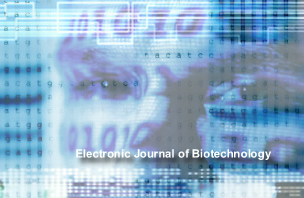
|
Electronic Journal of Biotechnology
Universidad Católica de Valparaíso
ISSN: 0717-3458
Vol. 24, No. 1, 2016, pp. 63-69
|
 Bioline Code: ej16062
Bioline Code: ej16062
Full paper language: English
Document type: Research Article
Document available free of charge
|
|
|
Electronic Journal of Biotechnology, Vol. 24, No. 1, 2016, pp. 63-69
| en |
Characterization and comparability of biosimilars: A filgrastim case of study and regulatory perspectives for Latin America
Mendoza-Macedo, Karina; Romero-Díaz, Alexis J.; Miranda-Hernández, Mariana P.; Campos-García, Víctor R.; Ramírez-Ibañez, Nancy D.; Juárez-Bayardo, L. Carmina; Moreno-Duran, Karen; Cedillo-Robles, Miriam S.; Pérez, Nestor O.; Jung-Cook, Helgi; Flores-Ortiz, Luis F. & Medina-Rivero, Emilio
Abstract
Background: Developing countries have an estimate of ten times more approved biosimilars than developed
countries. This disparity demands the need of an objective regulation that incorporates health policies
according to the technological and economical capabilities of each country. One of the challenges lies on the
establishment of comparability principles based on a physicochemical and biological characterization that
should determine the extent of additional non-clinical and clinical studies. This is particularly relevant for
licensed biosimilars in developing countries, which have an extensive clinical experience since their approval
as generics, in some cases more than a decade. To exemplify the current status of biosimilars in Mexico, a
characterization exercise was conducted on licensed filgrastim biosimilars using pharmacopeial and extended
characterization methodologies.
Results: Most of the evaluated products complied with the pharmacopeial criteria and showed comparability in
their Critical Quality Attributes (CQAs) towards the reference product. These results were expected in
accordance with their equivalent performance during their licensing as generics. Accordingly, a rational
approval and registration renewal scheme for biosimilars is proposed, that considers the proper identification
of CQAs and its thoroughly evaluation using selected techniques.
Conclusions: This approach provides support to diminish uncertainty of exhibiting different pharmacological
profiles and narrows or even avoids the necessity of comparative clinical studies. Ultimately, this proposal is
intended to improve the accessibility to high quality biosimilars in Latin America and other developing countries.
Keywords
Bio therapeutic; Comparability; Critical quality attributes; Developing countries; Generics; Health policies; High quality biosimilars; Regulation
|
| |
© Copyright 2016 - Pontificia Universidad Católica de Valparaíso
Alternative site location: http://www.ejbiotechnology.info
|
|
